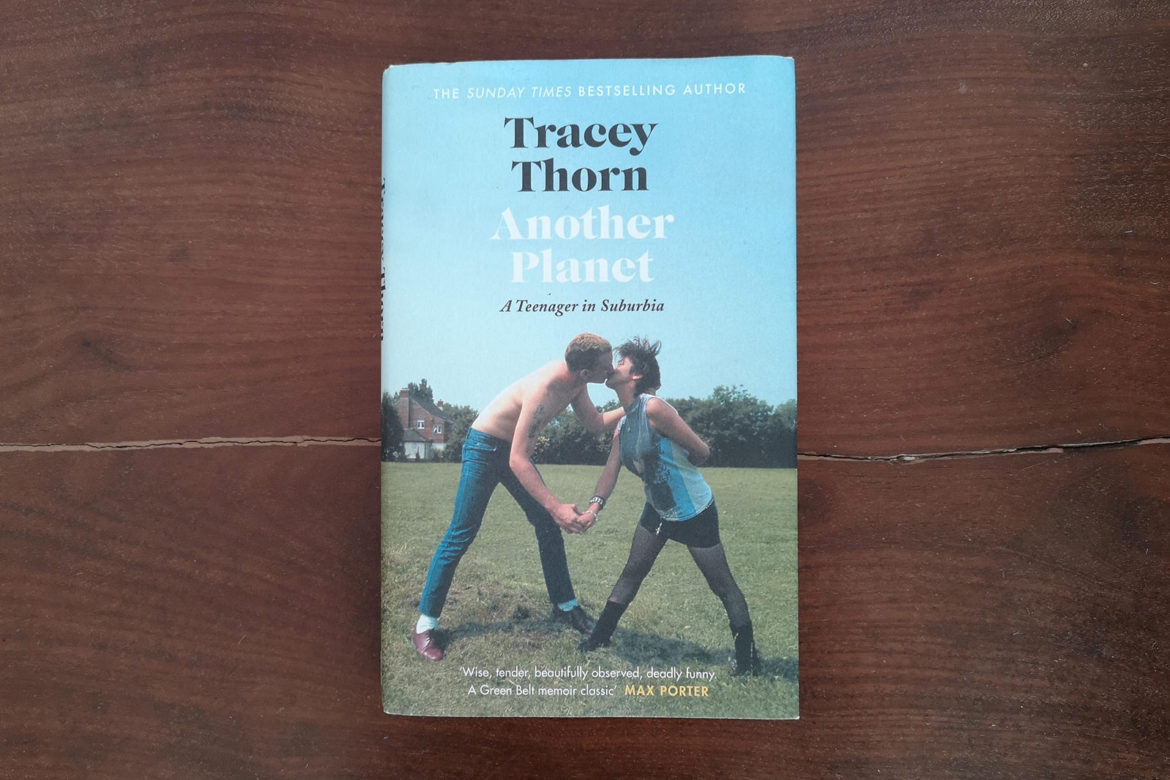This month’s book review felt close to home – literally [spoiler alert: this post discusses Another Planet: A Teenager in Suburbia by Tracey Thorn].
I was already familiar with Tracey Thorn, being half of duo Everything But The Girl – a band that I had listened to growing up. My dad was a fan and, like so many other bands, I absorbed his love for their wistful, folky dream-pop. I was, I’m embarrassed to say, less familiar with Thorn as the author of books and columns. Having read Another Planet, I now plan to read her other books.
I have mentioned my dad, but this book made me think of my relationship with my mother. It’s appropriate that I bought this book for her for Mother’s Day for the simple reason that she grew up in Brookmans Park – the suburban ‘other world’ that Thorn is referring to. She gifted it back to me after she’d read it, suggesting it might make a good read for book group. She was right.
There was a lot I could relate to as I read this book. Thorn addresses the feeling of needing to escape that I also felt growing up in Welwyn – a village not far from Brookmans Park. I was always hurling resentful accusations at my mother that Hertfordshire was terminally dull and I hated living there with every fibre of my being. Or words to that effect. She would retort with what she considered to be the positives of the suburban humdrum and insist I’d change my mind when I grew up.
The absence of things happening – as demonstrated in Thorn’s teenage diary entries from the 1970s – is a huge part of what drove me to distraction. As she observes, “If it had been written yet, I could have walked around all day singing that Del Amitri song ‘Nothing Ever Happens’”. However, it was her other reflections that struck a deeper chord with me.
The first of these was the idea of not being one thing or the other. Brookmans Park is neither rural or urban. Thorn calls it “a stop on the line, a space in between two landscapes that are both more highly rated – the city, and the countryside”. I was aware of this when I was a child. However, I hadn’t fully considered the other instances of feeling in limbo she notes. As a person growing up in suburbia, you’re not exactly posh but you’re not working-class either and Thorn touches on the unsettled feeling this can create – “I wasn’t a chav, despite my name, and yet I felt different from people I met at university, who were posher, or urban, or rural. And it wasn’t easy to be defiant and proud about the difference”.
The undercurrent of anxiety she reflects on is also something I hadn’t considered in any depth. However, when I think back to my childhood, there was this sense of anxiety hidden under the perfectly polished floorboards. It is hard for me to separate this from general feelings of anxiety, but the situations she recalls and the feelings associated with these do resonate with me. She says “it’s as if the desire for security in itself fosters an increased tendency to worry, a kind of watchful wariness. It’s the only way I can explain the sense of fearfulness, the background hum of tension, with which I grew up”. Every observation in this book hit home – literally.
You may be thinking that this book isn’t for you. Maybe you grew up in the countryside or maybe you spent your teenage years living in the city. Don’t be put off reading Another Planet. This is a thoroughly entertaining book. The Guardian called it “part memoir, part anthropology” and they were right. It’s not just about what suburbia is, but what we make it. Thorn’s confessional writing style makes you feel that you’re discussing these facets with her in person. Picking up this book each day was like revisiting a conversation with a friend. “I like to think I’m London”, she says as she talks about finally beginning to understand what drew her parents to Brookmans Park, “but in fact, like many people, I have suburban bones”.
In case you’re interested, I did make my escape from suburbia. I then returned at a pivotal point in my life for all the wrong reasons and found that Hertfordshire still wasn’t for me. I still regularly return to visit family. Like Thorn, I will always feel a conflicted attachment to my piece of suburbia, but I never feel like I belong. I can’t say that going back there is going home. I’m an alien from another planet.

